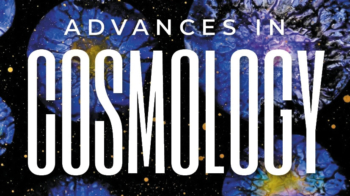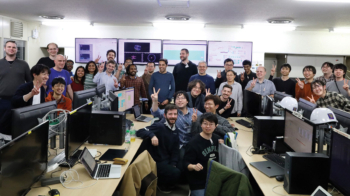The Major Atmospheric Gamma Imaging Cherenkov telescope (MAGIC) at La Palma, Canary Islands, has observed a gamma-ray burst seconds after its explosion was detected by NASA’s Swift satellite. It is the first time that a gamma-ray burst has been observed simultaneously in the X-ray and very-high-energy gamma-ray bands.

MAGIC detects cosmic gamma rays through the showers of charged particles they create in the atmosphere. With a tesselated mirror surface area of nearly 240 sq. m, it is the largest air Cherenkov telescope ever built and has been designed to be more sensitive to lower-energy gamma rays than other ground-based instruments. In this case, it was the ability to track rapidly – and the prompt action of the operators – that allowed the telescope to observe GRB050713A, a long-duration gamma-ray burst, only 40 s after its explosion on 13 July. MAGIC’s lightweight and precise mechanics let it rotate completely in 22 s.
Observations of GRB050713A began only 20 s after an alert from Swift, a member of the Gamma ray bursts Coordinates Network, which distributes the locations of bursts detected by spacecraft. In the case of Swift, this is in real time, so MAGIC was able to move on to the burst while it was still active in the X-ray range.
A first look at the MAGIC data did not reveal strong gamma-ray emissions above 175 GeV, and indeed the flux limit derived at very high energies by MAGIC is extremely low, two to three orders of magnitude lower than the extrapolation from lower energies. The upper limit for the flux of energetic gamma rays is consistent with the expected flux of a gamma-ray burst at high red-shift, strongly attenuated by cosmological pair production. These observations were reported at the 29th International Cosmic Ray Conference held in Pune, India, on 3-10 August; a detailed analysis of the data is in progress.
• MAGIC is managed by 17 institutes from Germany, Italy, Spain, Switzerland, Finland, the US, Poland, Bulgaria and Armenia.





